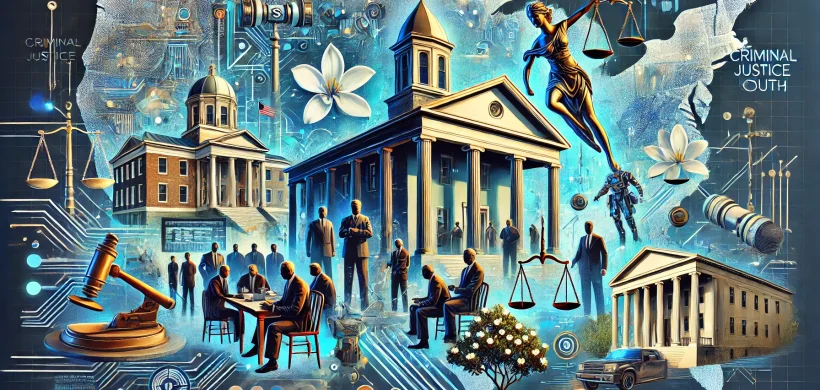The American South faces distinct challenges in criminal justice, shaped by its unique socio-economic and political context. With some of the highest incarceration rates in the nation, the region highlights critical issues like racial disparities, mass incarceration, and efforts toward reform. Here’s a look at key trends and reforms:
Mass Incarceration and Racial Disparities
The Southern states collectively have some of the highest imprisonment rates in the United States, driven by systemic issues like poverty, racial bias, and limited access to mental health and substance abuse services. Black individuals, particularly, face disproportionately high incarceration rates due to policies that exacerbate historical inequities. Laws rooted in the “war on drugs” and mandatory minimum sentencing contribute to these disparities, affecting communities across the South disproportionately.
Juvenile Justice Reform
Encouraging trends in the South include reforms targeting juvenile justice. Recent data suggests declining juvenile incarceration rates and efforts to address systemic inequities. However, challenges remain, such as ensuring access to rehabilitative services for young offenders and addressing the growing concerns about younger juveniles engaging in criminal activity. In states like Florida and Texas, community programs are being introduced to divert youth from the criminal justice system into restorative justice programs.
Prison Conditions and Privatization
The South has also faced criticism for poor prison conditions and the widespread use of private prisons. While private prisons hold a smaller fraction of inmates compared to public facilities, their use raises ethical concerns. Critics argue that privatization often prioritizes profit over rehabilitation, and the low wages paid to incarcerated workers exacerbate economic exploitation.
Public prisons in the South have also been under scrutiny for overcrowding and inadequate healthcare services, with states like Alabama and Mississippi cited for systemic neglect of prisoners’ rights.
Reforming Probation and Parole
Another pressing issue in the South is the over-reliance on probation and parole systems, which often act as traps for low-income individuals. Technical violations like missing appointments or failing to pay fees can lead to re-incarceration, disproportionately affecting marginalized communities. Efforts are underway in states like Georgia and Louisiana to reform these systems, with policies aiming to reduce the penalties for minor infractions and focus on rehabilitation.
Rehabilitation and Re-entry Initiatives
Rehabilitation programs are gaining traction in some Southern states, recognizing that successful reintegration into society is key to reducing recidivism. These initiatives include job training, mental health support, and addiction treatment. However, there is a long way to go in scaling these programs to meet demand, especially in rural areas where access to services is limited.
Looking Ahead
The South’s criminal justice landscape is a microcosm of broader national issues, intensified by the region’s historical and socio-political context. To address these challenges, advocacy groups emphasize reforms that prioritize alternatives to incarceration, reduce racial disparities, and invest in community-based solutions. Policies targeting systemic inequities—such as revising sentencing guidelines and expanding diversion programs—could significantly reduce the region’s reliance on incarceration while promoting public safety.
Sources
- Brennan Center for Justice – Southern Justice Trends
- Council on Criminal Justice – Juvenile Justice Data
- Prison Policy Initiative – Mass Incarceration and Reform Strategies
These resources provide further insights into the state of criminal justice reform and ongoing challenges in the South.

